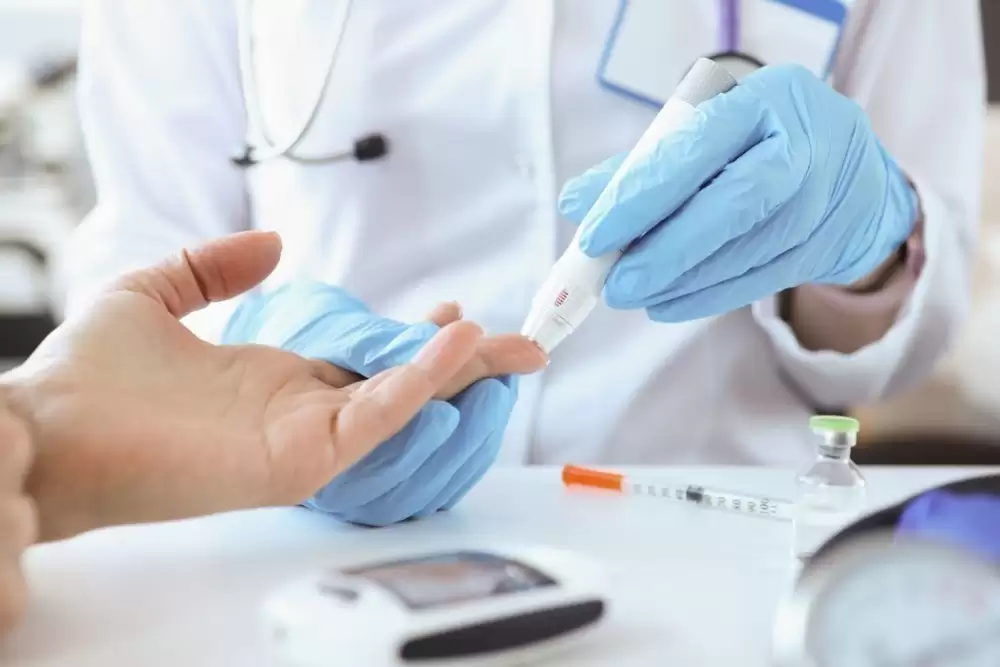Endocrinology: Delving into the World of Hormones and Health
Wiki Article
Browsing the Intricacies of Thyroid Disorders With an Endocrinologist
Thyroid conditions can be intricate and tough to handle. From medical diagnosis to treatment and long-lasting treatment, browsing the intricacies of these conditions calls for the know-how of an endocrinologist. In this article, we will discover the importance of seeking expert aid from an endocrinologist when handling thyroid problems. We will explore the understanding of various thyroid disorders, the value of precise medical diagnosis, and the offered treatment options. Furthermore, we will certainly discuss the ongoing administration and support required for people with thyroid conditions. By recognizing the function of an endocrinologist in attending to thyroid complexities, clients can empower themselves to make informed choices and get the detailed care they are entitled to.Comprehending Thyroid Disorders
Thyroid problems can be better understood with assistance from an endocrinologist. Hypothyroidism, for instance, takes place when the thyroid does not produce sufficient hormonal agents, resulting in symptoms such as tiredness, weight gain, and clinical depression.Understanding thyroid problems calls for a comprehensive evaluation of a person's clinical history, physical assessment, and research laboratory tests. Endocrinologists specialize in the diagnosis and treatment of hormone problems, consisting of thyroid problems.
In addition, endocrinologists are familiar with the most current improvements in thyroid research study, which enables them to offer one of the most effective and current therapy methods. Endocrinologist in leander. They can recommend medicine to regulate hormonal agent levels, suggest lifestyle alterations, and deal assistance on handling symptoms. In even more complicated instances, they might collaborate with various other experts to guarantee comprehensive treatment

Value of an Endocrinologist
An endocrinologist plays a crucial function in the medical diagnosis and administration of thyroid disorders, offering specialized expertise and expertise in hormone conditions. With their substantial training in the endocrine system, these doctor are uniquely certified to examine and treat thyroid conditions.One of the key reasons why an endocrinologist is essential in the administration of thyroid disorders is their capability to properly detect the problem. Thyroid problems can be intricate, with signs and symptoms that might overlap with other medical conditions. An endocrinologist has the experience to conduct an extensive examination, including a comprehensive case history, checkup, and specialized tests to accurately identify the certain thyroid problem.
Furthermore, an endocrinologist is furnished to create a customized treatment prepare for each individual person. They take into consideration aspects such as the type and seriousness of the thyroid problem, the individual's total wellness, and their choices. This customized strategy guarantees that the therapy strategy is optimized for the individual's specific requirements, causing better results.
In enhancement to diagnosis and treatment, an endocrinologist likewise plays a vital function in lasting management of thyroid conditions. They keep an eye on the person's thyroid hormone levels, change medicine does if essential, and offer continuous assistance and education and learning to help clients efficiently handle their problem.
Detecting Thyroid Disorders
The endocrinologist's experience extends to accurately identifying thyroid problems via a comprehensive examination, consisting of a thorough case history, physical exam, and specialized tests (Best endocrinologist in texas). This technique permits the endocrinologist to collect crucial information about the client's signs, clinical history, and family background, which can provide beneficial understandings Endocrinologist in cedar park right into the possible sources of the thyroid problemThroughout the physical exam, the endocrinologist will meticulously take a look at the individual's neck for any kind of indications of swelling or irregularity in the thyroid gland. They may additionally look for various other physical indications, such as modifications in hair texture, skin dryness, or protruding eyes, which can be indicative of thyroid disorders.
Along with the medical background and checkup, the endocrinologist may order customized tests to further review the feature of the thyroid gland. These tests might consist of blood tests to gauge the levels of thyroid hormonal agents, thyroid-stimulating hormonal agent (TSH), and antibodies that might be related to autoimmune thyroid problems. Imaging tests, such as ultrasound or nuclear medicine scans, may also be performed to analyze the size, form, and framework of the thyroid gland.
Therapy Options and Monitoring
The option of treatment depends on the certain kind and extent of the thyroid disorder, as well as individual patient elements. In situations of hypothyroidism, where the thyroid gland does not create sufficient thyroid hormonal agents, the most typical therapy is hormonal agent substitute treatment.For hyperthyroidism, where the thyroid gland produces excessive amounts of thyroid hormones, therapy alternatives include medications, radioactive iodine treatment, or surgery. Medicines, such as beta blockers, can be recommended to manage signs and symptoms and decrease the production of thyroid hormones. Radioactive iodine therapy entails taking a radioactive material that is uniquely soaked up by the over active thyroid cells, damaging them. Surgery may be advised in certain instances, such as when there are tumors or nodules present in the thyroid gland.
In enhancement to these conventional therapies, there are also different therapies that some people may consider, such as herbal supplements, acupuncture, or dietary changes. However, it is very important to note that these different treatments need to be gone over with an endocrinologist to ensure they are risk-free and efficient.
Long-Term Treatment and Assistance
Long-lasting care and assistance for individuals with thyroid conditions entails ongoing tracking and tailored treatment prepares provided by an endocrinologist. After an initial medical diagnosis and therapy, it is essential for individuals to proceed receiving regular follow-up care to make certain that their thyroid feature remains stable and that any type of possible difficulties are recognized and resolved quickly.
Routine tracking of thyroid hormonal agent degrees with blood examinations permits the endocrinologist to examine the performance of the therapy plan and make any type of needed changes. This close surveillance also makes it possible for the early detection of any modifications in thyroid function and the identification of prospective relapses or issues, such as the advancement of blemishes or the development of thyroid cancer. Depending upon the certain requirements of the client, tracking might take place every couple of months or on a yearly basis.

Conclusion
With their understanding and experience, endocrinologists can give long-term treatment and support to individuals with thyroid disorders. By looking for the assistance of an endocrinologist, people can obtain the necessary treatment and administration to effectively browse their thyroid disorder. Endocrinologist in georgetown.
Report this wiki page